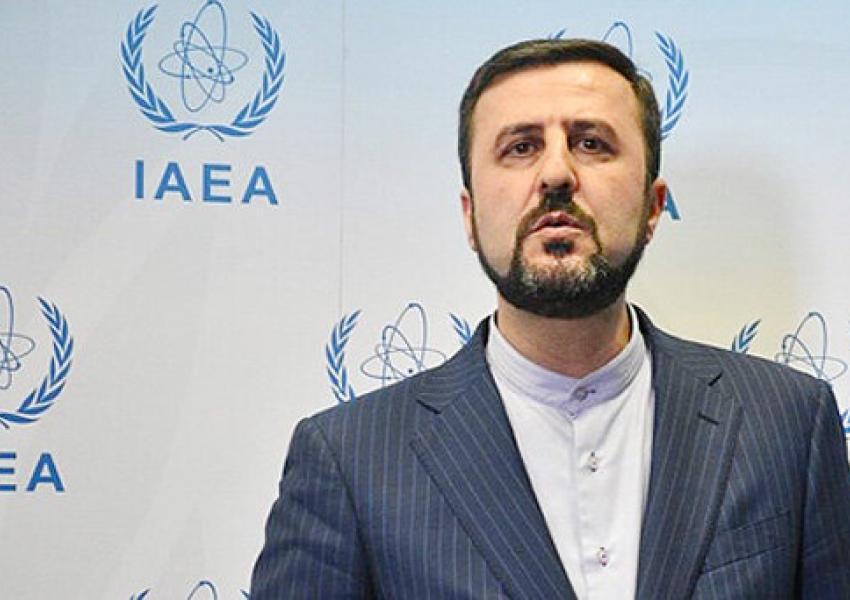
Iran's Envoy To IAEA Defends Breach Of Nuclear Deal Obligations
Kazem Gharibabadi, Iran's envoy to the International Atomic Energy Agency (IAEA), has defended the reduction of Tehran's obligations under the 2015 nuclear deal, the JCPOA, in a report to the UN nuclear watchdog.
In a meeting with the press on Sunday January 31, Gharibabadi presented an outline of his report to the IAEA member states, which began with an account of former US President Donald Trump's "illegal unilateral" withdrawal from the JCPOA in May 2018, reported the official Iranian news agency IRNA.
Gharibabadi said that upon pulling out of the nuclear deal, Trump re-imposed the sanctions that were lifted based on the JCPOA and exerted pressure on other countries and private companies within the frameworks of his "maximum pressure" policy which the Iranian diplomat characterized as a "failed policy."
Gharibabadi's report accused the EU and the European member states of the JCPOA for failing to take effective measures to counter the US sanctions. He pointed out that Iran waited in vain for a year for a measure by the EU before starting to reduce its obligations under the nuclear deal.
As a result of the US sanctions and EU's inaction, Iran's situation became serious as the sanctions on international banking affected Iran's trade including oil sale, as well as foreign investment in Iran, Gharibabadi said, adding that subsequently, the balance between what Iran gave and what it took based on the JCPOA was disrupted.
In his report to the IAEA member states, Gharibabadi also complained about excessive demands by the US, sabotage in Iran's nuclear facilities, the assassination of nuclear scientist Mohsen Fakhrizadeh and the world's "destructive silence" while defending Iran's actions by saying that they were within the frameworks defined by the JCPOA.
He also insisted that Iran continued full and transparent cooperation with the International Atomic Energy Agency.
Gharibabadi stressed that the legislation adopted by Iran’s parliament to limit commitments under the JCPOA was a strategic action proportionate to the Trump administration’s and JCPOA member states' behavior. He added that the legislation was aimed at saving the JCPOA and restoring the balance in the give and take based on the nuclear deal.
He concluded that all of Iran's actions are subject to IAEA verification and could be reversed as soon as the sanctions on Iran are lifted.
Meanwhile, speaking on the occasion of the anniversary of the 1979 Islamic revolution in Iran, IRGC Commander Hossein Salami said that despite the sanctions and the West's media campaign against Iran, the country is still powerful while its enemies have been marginalized.
He opined that the US army's trenches have been moved back to around the Congress, adding that Biden's inauguration took place within a military fortress.
Salami said: "Having a big dangerous enemy empowers us and makes us great." He added that "Iran no longer needs the JCPOA," IRGC-linked news agency Tasnim quoted him as saying.
He also said: "We have reached a point that we no longer need the nuclear deal. Our priority is no longer lifting the sanctions. It is rather reaching a state where we no longer need to have the sanctions lifted."
Salami who usually makes blustery statements failed to mention Iran’s economic crisis triggered by the US sanctions and Iran’s own ultimatums to lift the economic restrictions.





